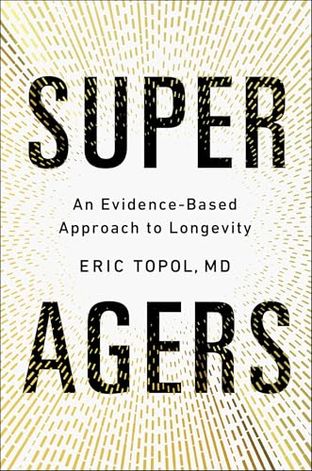Review of Super Agers
by Johny McFliggen, PhD Literature & Business, Oxford
In the delightful labyrinth of speculative bibliophilia, I find myself pondering the elusive "Super Agers" by Eric Topol—a book that, according to my exhaustive research, remains as intangible as Schrödinger's cat. Yet, let's indulge in a theoretical exercise. Eric Topol, the venerable sage of digital medicine, has previously graced us with tomes like "Deep Medicine," which have deftly woven technology into the fabric of healthcare narratives. One could imagine "Super Agers" as a cerebral exploration of longevity, perhaps examining the nexus of aging and artificial intelligence.
Eric Topol's literary oeuvre habitually challenges the boundaries of conventional medical discourse, much like an episode of "Black Mirror" that leaves you questioning reality. His works are akin to Siddhartha Mukherjee's "The Gene," blending scientific rigor with a narrative flair that transforms complex subjects into digestible enlightenment. In this hypothetical "Super Agers," one might anticipate a profound analysis of how technology could extend not just life but the quality thereof—a veritable fountain of youth via silicon chips and genomic wizardry.
Consider, if you will, how Topol's previous musings on patient empowerment and digital health could be extrapolated to the realm of aging. Could we see a future where octogenarians run marathons or perhaps dabble in quantum computing from their solar-powered smart homes? This imagined treatise might echo Atul Gawande's "Being Mortal," yet with a futurist twist—an optimistic view on aging, where technology is not merely an adjunct but an integral symbiote in the human experience.
In a world perpetually obsessed with youth and vitality, "Super Agers," if it exists, could serve as a beacon for a new paradigm: aging not as a decline but as an ascent to new summits of wisdom and capability. Eric Topol has been lauded for making the esoteric accessible, much like Carl Sagan once did with the cosmos. One can only hope that "Super Agers," real or imagined, would inspire a revolution in how society perceives the twilight years.
Until this book materializes—or is confirmed as a mere figment—let us revel in the speculative potential of Topol's fertile mind. If his past works are any indication, when and if "Super Agers" does see the light of day, it will undoubtedly be a testament to his vision of a future where aging is not feared but embraced.
Purchase Link: Super Agers on Amazon



